
CORAL REEFS
Scope & Guideline
Exploring the Depths of Aquatic Innovation
Introduction
Aims and Scopes
- Coral Biology and Physiology:
Research on the biological processes, physiological responses, and adaptations of corals to environmental stressors, including thermal stress, ocean acidification, and nutrient enrichment. - Coral Ecology and Ecosystem Dynamics:
Studies examining the ecological interactions within coral reef ecosystems, including species interactions, community dynamics, and the impact of environmental gradients on coral assemblages. - Coral Conservation and Restoration:
Exploration of strategies for the conservation and restoration of coral reefs, including the effectiveness of various restoration techniques and the role of marine protected areas. - Impact of Climate Change on Coral Reefs:
Investigation of the effects of climate change on coral reef systems, including coral bleaching events, changes in species composition, and the resilience of coral communities. - Symbiotic Relationships and Microbial Ecology:
Research focusing on the interactions between corals and their symbiotic partners, such as zooxanthellae and other microorganisms, and how these relationships influence coral health and survival. - Benthic Community Structure and Function:
Analysis of the composition and functional roles of benthic organisms associated with coral reefs, including macroalgae, invertebrates, and their interactions with coral species.
Trending and Emerging
- Climate Resilience and Adaptation:
There is a growing emphasis on understanding the mechanisms of coral resilience and adaptation to climate change, particularly in the context of thermal stress and ocean acidification. - Multi-Omics Approaches:
The use of multi-omics techniques (genomics, transcriptomics, metabolomics) to explore coral responses to environmental stressors is gaining traction, allowing for deeper insights into coral physiology and health. - Ecosystem Services and Socio-Ecological Interactions:
Research increasingly focuses on the ecosystem services provided by coral reefs and the socio-ecological interactions that influence reef management and conservation efforts. - Microbial and Symbiotic Interactions:
Emerging studies are concentrating on the role of microbial communities and symbiotic relationships in coral health, including the dynamics of zooxanthellae and their influence on coral bleaching. - Innovative Restoration Techniques:
There is a notable increase in research dedicated to innovative coral restoration techniques, including the use of genetic tools and artificial structures to enhance coral resilience and recovery. - Impact of Anthropogenic Stressors:
Research is increasingly examining the cumulative impacts of anthropogenic stressors, such as pollution and overfishing, on coral reef ecosystems, highlighting the need for integrated management strategies.
Declining or Waning
- Historical Coral Reef Dynamics:
Research focusing on historical perspectives of coral reef dynamics, including long-term ecological changes and past coral community structures, is less frequently published, possibly overshadowed by immediate conservation concerns. - Traditional Taxonomic Studies:
Studies solely aimed at taxonomic classification of coral species without addressing ecological or functional implications have seen a decline, as there is a greater emphasis on integrative and functional approaches. - Coral Disease Research:
While still relevant, the frequency of studies solely examining coral diseases without linking them to broader ecological or environmental contexts appears to be waning, as researchers focus more on holistic approaches. - Invasive Species Impact Studies:
Research specifically dedicated to the impacts of invasive species on coral reefs is being replaced by more integrated studies that consider multiple stressors and their cumulative effects on reef health.
Similar Journals
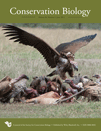
CONSERVATION BIOLOGY
Leading the way in conservation science and practice.CONSERVATION BIOLOGY, published by Wiley, is a leading journal in the field of ecology and conservation, with a focus on disseminating high-quality research that addresses pressing environmental challenges. With a strong impact factor and categorized in the top quartile (Q1) across various relevant fields including Ecology, Evolution, Behavior and Systematics, and Nature and Landscape Conservation, the journal plays a pivotal role in advancing the scientific understanding of biodiversity and conservation practices. Since its establishment in 1987, CONSERVATION BIOLOGY has provided a vital platform for researchers, professionals, and students to share innovative findings and facilitate discussions surrounding ecological sustainability and conservation strategies. Although it is not an open-access publication, it ensures that a wide range of significant research is accessible to the global scientific community. The journal’s rigorous peer-review process and reputation for excellence make it an essential resource for anyone involved in the study of ecology and conservation.

VIE ET MILIEU-LIFE AND ENVIRONMENT
Empowering Scholars to Navigate Environmental DynamicsVIE ET MILIEU - LIFE AND ENVIRONMENT is a pivotal journal in the realms of aquatic science and ecology, serving as a vital platform for researchers and professionals interested in the interconnections between living organisms and their environments. Published by the esteemed OBSERVATOIRE OCEANOLOGIQUE BANYULS in France, this journal has been disseminating valuable research since its inception in 1980, with volumes covering various topics pertinent to environmental dynamics through to 2024. Despite its current classification in the Q4 quartile for both aquatic science and ecology, the journal offers a unique opportunity for scholars to contribute to niche areas often overlooked by more prominent publications. VIE ET MILIEU is committed to fostering a comprehensive understanding of ecological interactions and the conservation of aquatic ecosystems, making it an essential resource for those engaged in environmental science and biology. Researchers can access a wealth of knowledge that supports their work, encourages collaboration, and inspires innovative approaches to pressing ecological issues.
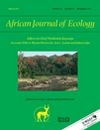
AFRICAN JOURNAL OF ECOLOGY
Driving Innovation in Ecology and SystematicsThe African Journal of Ecology, published by Wiley, is a leading academic journal in the field of Ecology, Evolution, Behavior, and Systematics. Established in 1963 and continuing its vital contributions to the field until 2024, this journal serves as a premier platform for researchers and scholars to share groundbreaking studies that explore the intricate relationships within ecosystems, particularly in the African context. With an impressive Scopus Rank of #423 out of 721 and a Q3 Quartile ranking, it stands as a credible source of scholarly information, gaining recognition among peers for its rigorous peer-review process and impactful publications. While the journal is not open access, it remains influential in driving advancements in ecological research and providing insights vital for conservation efforts and biodiversity studies. Authors and readers alike will find that the African Journal of Ecology not only promotes scientific inquiry but also fosters a deeper understanding of ecological dynamics that affect our world.

JOURNAL OF COASTAL CONSERVATION
Championing the future of coastal conservation through impactful scholarship.JOURNAL OF COASTAL CONSERVATION, published by SPRINGER, is a premier academic journal dedicated to the study and promotion of coastal ecosystem management and conservation strategies. With a rich publication history beginning in 1995 and spanning over multiple converged years, this journal serves as a vital platform for researchers and professionals in the fields of Ecology, Nature and Landscape Conservation, and Oceanography. Recognized for its impactful contributions, it holds a Q2 ranking in multiple categories for 2023, including Ecology and Oceanography, underscoring its significance in advancing knowledge and practice in coastal conservation. With a commitment to delivering high-quality, peer-reviewed articles, the journal facilitates discourse on critical issues affecting coastal environments, making it an essential resource for scholars and practitioners looking to enhance the sustainability and resilience of coastal habitats. The journal provides broad access to vital research findings, ensuring that both the academic community and policy-makers have the information necessary to address the pressing challenges facing coastal regions worldwide.
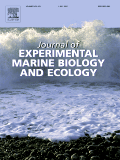
JOURNAL OF EXPERIMENTAL MARINE BIOLOGY AND ECOLOGY
Advancing Knowledge in Marine Biology and EcologyJOURNAL OF EXPERIMENTAL MARINE BIOLOGY AND ECOLOGY, published by Elsevier, serves as a premier outlet for researchers dedicated to the exploration and understanding of marine organisms and their ecosystems. Established in 1967 and running until 2024, this prestigious journal holds an impact factor reflecting its significance within the scientific community, particularly in the fields of Aquatic Science and Ecology, Evolution, Behavior and Systematics, where it ranks in the Q2 quartile. With a focus on original research and critical reviews, it aims to advance knowledge in marine biology and ecology, fostering a deeper understanding of marine environments that are crucial to biodiversity and ecosystem health. The journal is indexed in Scopus, with impressive rankings highlighted by a 73rd percentile in Ecology and a 68th percentile in Aquatic Science, making it an essential resource for researchers, professionals, and students alike wanting to contribute to and stay informed about advancements in marine ecological research.

COASTAL ENGINEERING JOURNAL
Shaping the Landscape of Civil and Structural EngineeringCOASTAL ENGINEERING JOURNAL, published by Taylor & Francis Ltd, stands as a pivotal resource in the fields of Civil and Structural Engineering, Modeling and Simulation, and Ocean Engineering. Since its inception, with publishing spans from 1975 to the present, the journal has fostered innovative research and practical solutions to address the complex challenges posed by coastal environments. With its current positioning in the Q2 category for its respective disciplines in 2023, the journal's rigorous peer-review process ensures that only high-quality studies are disseminated, highlighting its commitment to excellence in scholarly communication. Although currently not an Open Access publication, the journal provides access options that promote wider engagement within the academic community. Researchers, professionals, and students seeking to deepen their understanding of coastal engineering will find a wealth of knowledge in its pages, reinforcing the journal's importance as a leading forum for advanced discourse in this dynamic field.
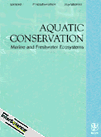
AQUATIC CONSERVATION-MARINE AND FRESHWATER ECOSYSTEMS
Fostering interdisciplinary insights for ecosystem resilience.AQUATIC CONSERVATION-MARINE AND FRESHWATER ECOSYSTEMS, published by WILEY, is a premier international journal dedicated to advancing the understanding of aquatic ecosystems and their conservation. With an impact factor reflecting its significant influence and a distinguished position in the Q1 quartile across key categories such as Aquatic Science, Ecology, and Nature and Landscape Conservation, this journal serves as an essential resource for researchers and professionals engaged in the study and protection of marine and freshwater environments. Covering a broad array of topics, from ecosystem management to conservation strategies, the journal encourages the dissemination of innovative research and interdisciplinary perspectives. Although it is not an open-access publication, this journal is esteemed for its rigorous peer-review process, facilitating a platform where vital research influences policy and practice in the aquatic sciences. Established in 1991, AQUATIC CONSERVATION continues to be a cornerstone in the academic exploration and safeguarding of aquatic ecosystems through to its converged years of 2024 and beyond, providing a critical lens for the future of environmental sustainability.
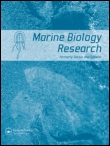
Marine Biology Research
Empowering the next generation of marine researchers.Marine Biology Research is a premier journal published by Taylor & Francis, focusing on the dynamic field of marine biology and its intersecting realms of aquatic science, ecology, and oceanography. Since its inception in 2005, this journal has served as a crucial platform for researchers and professionals to disseminate their findings, with a vision extending to 2024 and beyond. The journal is recognized with a Q3 quartile ranking in both Aquatic Science and Ecology, Evolution, Behavior and Systematics, underscoring its growing influence in these fields as evidenced by its Scopus rankings. Located in the United Kingdom, Marine Biology Research aims to foster collaboration and innovation through open access options, facilitating knowledge exchange among the academic community. With a steady commitment to advancing marine sciences, this journal is an invaluable resource for those dedicated to understanding and preserving our ocean ecosystems.

PACIFIC CONSERVATION BIOLOGY
Championing biodiversity research across the Pacific region.PACIFIC CONSERVATION BIOLOGY is an esteemed academic journal published by CSIRO PUBLISHING, dedicated to advancing research in the fields of ecology and nature conservation. With a strong focus on the unique challenges and biodiversity of the Pacific region, this journal serves as a crucial platform for researchers, conservationists, and students alike to disseminate high-quality, impactful findings. Operating from Australia, it has become a significant resource since its inception in 1993, navigating through nearly three decades of vital scholarly communication. Ranked in the Q2 category for both Ecology and Nature and Landscape Conservation as of 2023, PACIFIC CONSERVATION BIOLOGY maintains rigorous standards, as reflected in its successful Scopus rankings. The journal plays a pivotal role in addressing pressing ecological issues and fostering innovative conservation strategies, making it an essential reference for anyone involved in environmental science. Access options for the journal facilitate widespread distribution of knowledge, supporting the mission to promote informed decision-making in conservation practices.

BULLETIN OF MARINE SCIENCE
Advancing marine knowledge for a sustainable future.BULLETIN OF MARINE SCIENCE, published by Rosenstiel School of Marine and Atmospheric Science, is a prominent journal dedicated to advancing the field of marine science through scholarly research and peer-reviewed articles. With an ISSN of 0007-4977 and an E-ISSN of 1553-6955, this journal has been contributing to significant scientific discourse since its inception in 1973. Covering a wide spectrum of topics in aquatic sciences and oceanography, it has maintained a respectable position in the academic community, as evidenced by its Q3 ranking in both categories for 2023. Although currently not an open-access journal, it provides essential access to groundbreaking research that informs marine conservation, ecological studies, and atmospheric sciences. Situated in the United States at 4600 Rickenbacker Causeway, Miami, FL 33149, the journal serves as a vital resource for researchers, professionals, and students seeking to engage with the latest findings in marine science and foster a deeper understanding of our oceans.